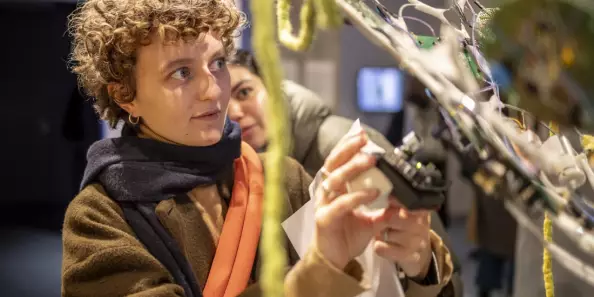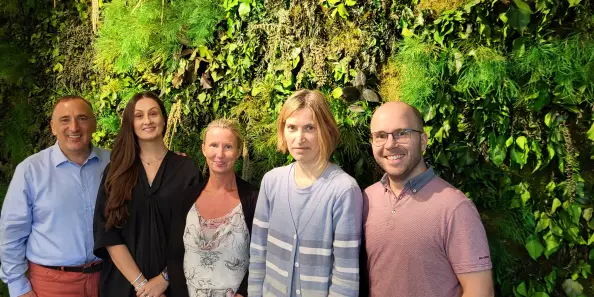Berlin Science Week 2023
10 days dedicated to science, more than 200 physical, digital and hybrid events, renowned international scientists and speakers from over 180 organisations, and over 35,000 visitors from 140 nations...
4 universities, 22 technology parks, 70 non-university institutions: Berlin is home to a diverse and strong scientific community. And every science-related meeting and event held in the city benefits from this.
Berlin offers a closely linked ecosystem of universities, technology parks, start-ups, professional associations, interest groups, and other major players in the world of science. This makes Berlin a sought-after location for meetings on scientific issues. Sixteen per cent of all events in Berlin already address matters related to medicine and science. It’s time to delve more precisely into Berlin as a centre for science and research.
16 Nobel Prize laureates – Berlin as a city of thinkers: Whether in chemistry, physics, or medicine, Berlin’s Nobel laureates have been leaders in many areas of research. Or did you know that Berlin was even called “Nobel Prize Town” at the beginning of the 20th century? Several laureates of the era came from Berlin. Many important inventions have also come out of Berlin: the electron microscope was developed by Berlin physicist Ernst Ruska.
1,500 associations – first-hand expertise: Berlin is not just a centre for science; it is also the political centre of Germany. As a result, many professional associations and interest groups have offices in the capital city. Whether it’s electrical or metalworking associations or internet communications lobbyists, the organisations and their employees represent a lot of expertise amassed in one city that helps drive their respective industries.
22 technology parks – projects and research driving the future: Business and science are working hand-in-hand in Berlin on projects that will shape the world’s future. At the Adlershof Science and Technology Park, also known as the “smartest neighbourhood” in Berlin, non-university research institutes, specialist centres, and incubators share the campus with the natural sciences faculty of Humboldt University. In total, the technology park houses more than 1,000 companies with over 15,000 employees. BiotechPark Berlin-Buch is a place for start-ups and more established companies to collaborate primarily in the field of biomedicine.
4 state universities and 23 private universities – the beating heart of international research and teaching: Almost 19,000 professors, lecturers, staff, and tutors conduct research and teach in Berlin. The city’s top research universities include the Free University, Humboldt University, and TU Berlin. International collaboration and partnerships promote the international profile of scientific research and teaching in Berlin.
200,000 students – Berlin is a magnet for the next generation of researchers: Berlin universities attract students from far afield: 60% of students moved to Berlin for their studies and 18% have foreign roots – ideal prerequisites for the exchange of knowledge and new perspectives.
70 non-university institutions – setting the pace for the future: Research projects at non-university institutions such as the Frauenhofer Institut and the Helmholtz Association focus on future-oriented topics and innovations: robotics and mechatronics, molecular medicine, urban studies, and environmental protection represent only a small part of the research fields pursued by Berlin’s scientific community.
2,000 start-ups – inspiring research: Berlin’s start-up scene is growing ... and growing. Today 60,000 people in the city work for recently founded companies, most of which are seeking answers to the questions of tomorrow. These include challenges in the areas of healthcare, mobility, and financial services.

The figures for Berlin as a centre for science speak for themselves. And that’s why the city on the River Spree is a top choice for science-related events. For example, for the past nine years, Berlin has hosted the World Health Summit, the world’s most important strategic forum for global health care issues.

Science-related conventions can benefit considerably from Berlin: current research results and projects from the capital can further enhance meeting agendas and promote international networking. Lectures by local ambassadors from Berlin’s science and research scene can open up new perspectives.

10 days dedicated to science, more than 200 physical, digital and hybrid events, renowned international scientists and speakers from over 180 organisations, and over 35,000 visitors from 140 nations...

DCI is a global economic development consulting firm with over 50 years of experience based in North America.